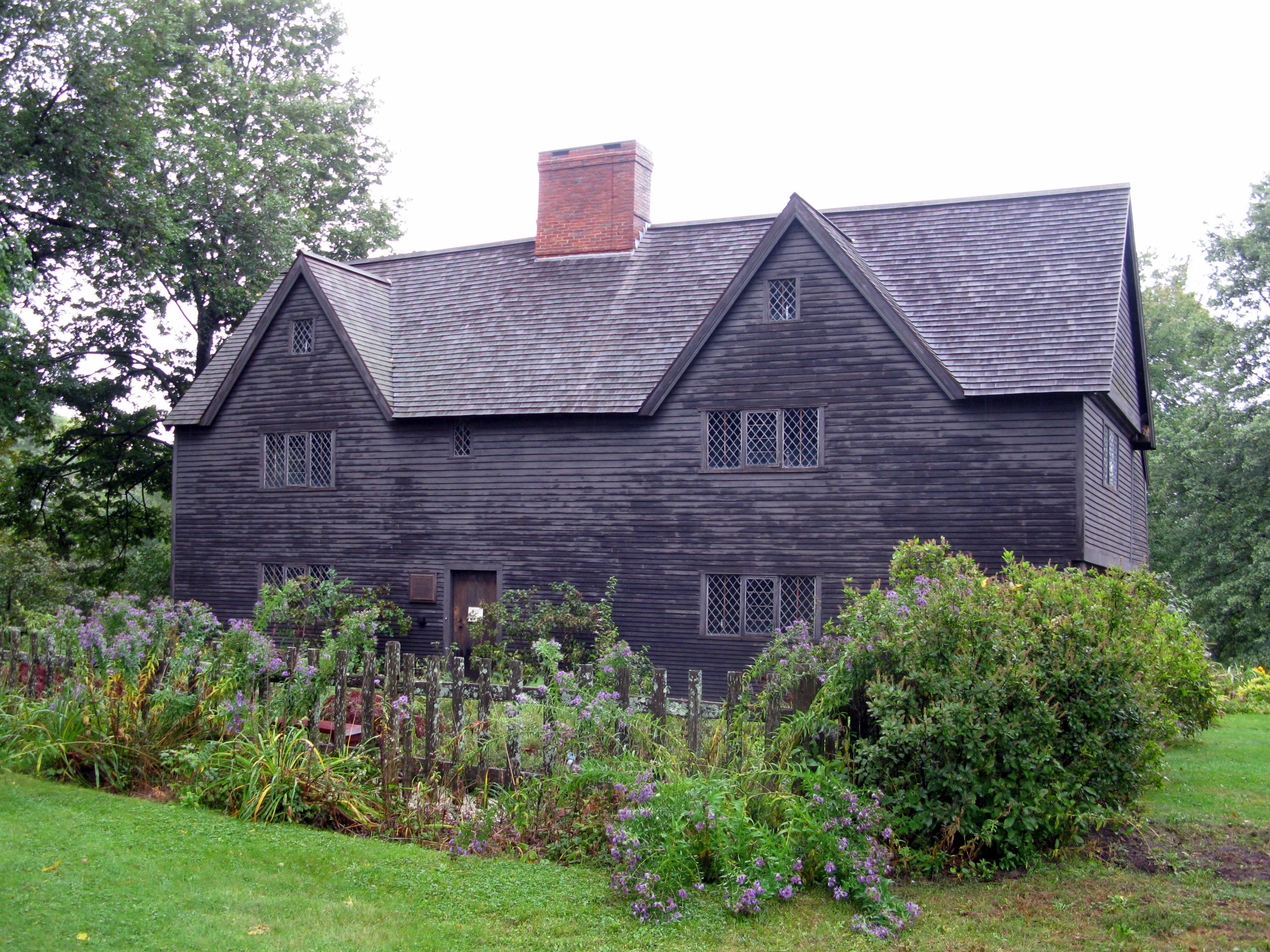|
Ipswich Historical Society
The Ipswich Historical Society (IHS) in Ipswich, Massachusetts was founded by Reverend Thomas Franklin Waters in 1890. The Society initially had no headquarters, and met in the studio of artist Arthur Wesley Dow. They eventually found a better place to meet in the Odd Fellows Hall. The Society's first major project would be to restore the John Whipple House, and make part of it their headquarters. The Heard house The Heard house (1795-1800) was sold to the IHS in 1936 by Alice Leeds Heard, also known as Elsie. It was the family residence of American entrepreneur, Augustine Heard. She sold the house under the agreement that she could live in it for the rest of her life. Upon her death in 1953 a plaque Plaque may refer to: Commemorations or awards * Commemorative plaque, a plate or tablet fixed to a wall to mark an event, person, etc. * Memorial Plaque (medallion), issued to next-of-kin of dead British military personnel after World War I * Pl ... was installed in the hou ... [...More Info...] [...Related Items...] OR: [Wikipedia] [Google] [Baidu] |
Ipswich, Massachusetts
Ipswich is a coastal town in Essex County, Massachusetts, United States. The population was 13,785 at the 2020 census. Home to Willowdale State Forest and Sandy Point State Reservation, Ipswich includes the southern part of Plum Island. A residential community with a vibrant tourism industry, the town is famous for its clams, celebrated annually at the Ipswich Chowderfest, and for Crane Beach, a barrier beach near the Crane estate. Ipswich was incorporated as a town in 1634. History Ipswich was founded by John Winthrop the Younger, son of John Winthrop, one of the founders of the Massachusetts Bay Colony in 1630 and its first governor, elected in England in 1629. Several hundred colonists sailed from England in 1630 in a fleet of 11 ships, including Winthrop's flagship, the ''Arbella''. Investigating the region of Salem and Cape Ann, they entertained aboard the ''Arbella'' for a day, June 12, 1630, a native chief of the lands to the north, Chief Masconomet. The event was record ... [...More Info...] [...Related Items...] OR: [Wikipedia] [Google] [Baidu] |
Thomas Franklin Waters
Thomas may refer to: People * List of people with given name Thomas * Thomas (name) * Thomas (surname) * Saint Thomas (other) * Thomas Aquinas (1225–1274) Italian Dominican friar, philosopher, and Doctor of the Church * Thomas the Apostle * Thomas (bishop of the East Angles) (fl. 640s–650s), medieval Bishop of the East Angles * Thomas (Archdeacon of Barnstaple) (fl. 1203), Archdeacon of Barnstaple * Thomas, Count of Perche (1195–1217), Count of Perche * Thomas (bishop of Finland) (1248), first known Bishop of Finland * Thomas, Earl of Mar (1330–1377), 14th-century Earl, Aberdeen, Scotland Geography Places in the United States * Thomas, Illinois * Thomas, Indiana * Thomas, Oklahoma * Thomas, Oregon * Thomas, South Dakota * Thomas, Virginia * Thomas, Washington * Thomas, West Virginia * Thomas County (other) * Thomas Township (other) Elsewhere * Thomas Glacier (Greenland) Arts, entertainment, and media * ''Thomas'' (Burton novel) 1969 novel ... [...More Info...] [...Related Items...] OR: [Wikipedia] [Google] [Baidu] |
Studio
A studio is an artist or worker's workroom. This can be for the purpose of acting, architecture, painting, pottery (ceramics), sculpture, origami, woodworking, scrapbooking, photography, graphic design, filmmaking, animation, industrial design, radio or television production broadcasting or the making of music. The term is also used for the workroom of dancers, often specified to dance studio. The word ''studio'' is derived from the , from , from ''studere'', meaning to study or zeal. The French term for studio, ''atelier'', in addition to designating an artist's studio is used to characterize the studio of a fashion designer. ''Studio'' is also a metonym for the group of people who work within a particular studio. :uz:Studiya Art studio The studio of any artist, especially from the 15th to the 19th centuries, characterized all the assistants, thus the designation of paintings as "from the workshop of..." or "studio of..." An art studio is sometimes called an atelier, ... [...More Info...] [...Related Items...] OR: [Wikipedia] [Google] [Baidu] |
Arthur Wesley Dow
Arthur Wesley Dow (1857 – December 13, 1922) was an American painter, printmaker, photographer and an arts educator. Early life Arthur Wesley Dow was born in Ipswich, Massachusetts, in 1857. Dow received his first art training in 1880 from Anna K. Freeland of Worcester, Massachusetts. The following year, Dow continued his studies in Boston with James M. Stone, a former student of Frank Duveneck and Gustave Bouguereau. In 1884, he went to Paris for his early art education, studying at the Académie Julian, under the supervision of the academic artists Gustave Boulanger and Jules Joseph Lefebvre. Career In 1893, Dow was appointed assistant curator of the Japanese collection at the Museum of Fine Arts, Boston under Ernest Fenellosa. Fenellosa introduced Dow to ukiyo‑e, the woodblock prints of Japan, which greatly influenced his later works. He accepted commissions for posters and other commercial work. In 1895, he designed the poster to advertise the ''Journal of Mod ... [...More Info...] [...Related Items...] OR: [Wikipedia] [Google] [Baidu] |
Independent Order Of Odd Fellows
The Independent Order of Odd Fellows (IOOF) is a non-political and non-sectarian international fraternal order of Odd Fellowship. It was founded in 1819 by Thomas Wildey in Baltimore, Maryland, United States. Evolving from the Order of Odd Fellows founded in England during the 18th century, the IOOF was originally chartered by the Independent Order of Oddfellows Manchester Unity in England but has operated as an independent organization since 1842, although it maintains an inter-fraternal relationship with the English Order. The order is also known as the ''Triple Link Fraternity'', referring to the order's "Triple Links" symbol, alluding to its motto "Friendship, Love and Truth". While several unofficial Odd Fellows Lodges had existed in New York City circa 1806–1818, because of its charter relationship, the American ... [...More Info...] [...Related Items...] OR: [Wikipedia] [Google] [Baidu] |
John Whipple House
The John Whipple House is a historic colonial house at 1 South Green in Ipswich, Massachusetts. Built in the seventeenth century, the house has been open to the public as a museum since 1899 and was the subject of some of the earliest attempts at the preservation of colonial houses. It was designated a National Historic Landmark in 1960, one of the earliest properties to receive that honor. History Construction of the three-story wood-frame First Period house was begun by Captain John Whipple in 1677 at the corner of Saltonstall and Market Streets. This initial construction consisted of a half-house timber frame with a chimney on the right side. In 1690, his son Major John Whipple added a second half-house to the right of the entryway. By 1705, a series of 3-sided 1-story timber frame additions (lean-tos) had been added on the west side of the house, including a kitchen (the third chimney), a buttery, and sleeping quarters for the household slaves and servants. Circa 1710, the ... [...More Info...] [...Related Items...] OR: [Wikipedia] [Google] [Baidu] |
Heard House, Ipswich Historical Society, MA
Heard may refer to: *Hearing (sense) *Heard (surname) *The Heard, an American 1960s garage rock band *Heard Island and McDonald Islands, an Australian external territory *Heard County, Georgia, U.S. See also *Herd *Hird The hird (also named "Håndgangne Menn" in Norwegian), in Scandinavian history, was originally an informal retinue of personal armed companions, hirdmen or housecarls, but came to mean not only the nucleus ('Guards') of the royal army, but also d ... * Hurd (other) {{Disambiguation ... [...More Info...] [...Related Items...] OR: [Wikipedia] [Google] [Baidu] |
Augustine Heard
Augustine Heard (March 30, 1785 – September 14, 1868) was an American entrepreneur, businessman and trader, and founder of the Augustine Heard & Co. firm in China. Early career Augustine Heard was born into a wealthy merchant family of Ipswich, Massachusetts. His father, John Heard (1744-1834), had made his fortune by trading with the West Indies, and his half-brother Daniel (1778-1801) also worked in foreign trade with the West Indies and China. Educated at Phillips Exeter Academy in New Hampshire, Augustine did not graduate and instead, in 1803, began working for a prominent Boston, Massachusetts merchant, Ebenezer Francis. Two years later, Heard embarked as supercargo to Calcutta on one of Francis' ships. Climbing the ranks of trading companies, Heard was, by 1812, captain of his first ship, the brig ''Caravan''. He pursued his naval career for 18 years, becoming a renowned navigator and his feats became the subject of poems and stories. In 1818, Heard purchased 50 ... [...More Info...] [...Related Items...] OR: [Wikipedia] [Google] [Baidu] |
Commemorative Plaque
A commemorative plaque, or simply plaque, or in other places referred to as a historical marker, historic marker, or historic plaque, is a plate of metal, ceramic, stone, wood, or other material, typically attached to a wall, stone, or other vertical surface, and bearing text or an image in relief, or both, to commemorate one or more persons, an event, a former use of the place, or some other thing. Many modern plaques and markers are used to associate the location where the plaque or marker is installed with the person, event, or item commemorated as a place worthy of visit. A monumental plaque or tablet commemorating a deceased person or persons, can be a simple form of church monument. Most modern plaques affixed in this way are commemorative of something, but this is not always the case, and there are purely religious plaques, or those signifying ownership or affiliation of some sort. A plaquette is a small plaque, but in English, unlike many European languages, the term is ... [...More Info...] [...Related Items...] OR: [Wikipedia] [Google] [Baidu] |
Historical Societies In Massachusetts
History (derived ) is the systematic study and the documentation of the human activity. The time period of event before the invention of writing systems is considered prehistory. "History" is an umbrella term comprising past events as well as the memory, discovery, collection, organization, presentation, and interpretation of these events. Historians seek knowledge of the past using historical sources such as written documents, oral accounts, art and material artifacts, and ecological markers. History is not complete and still has debatable mysteries. History is also an academic discipline which uses narrative to describe, examine, question, and analyze past events, and investigate their patterns of cause and effect. Historians often debate which narrative best explains an event, as well as the significance of different causes and effects. Historians also debate the nature of history as an end in itself, as well as its usefulness to give perspective on the problems of the p ... [...More Info...] [...Related Items...] OR: [Wikipedia] [Google] [Baidu] |





.jpg)